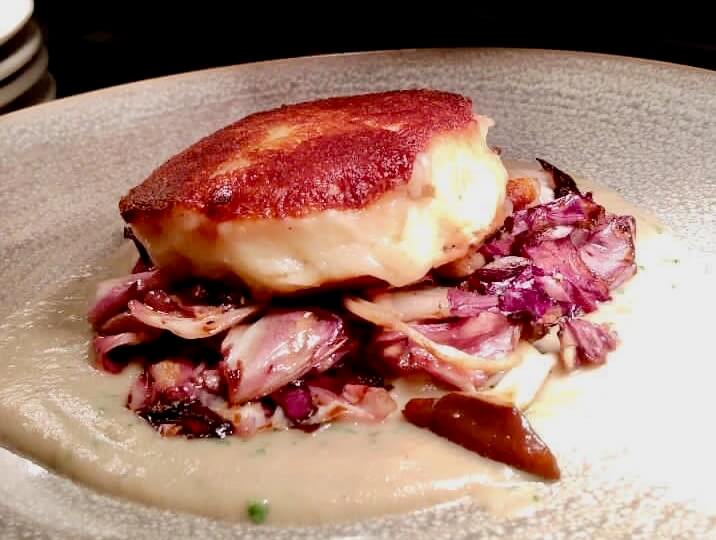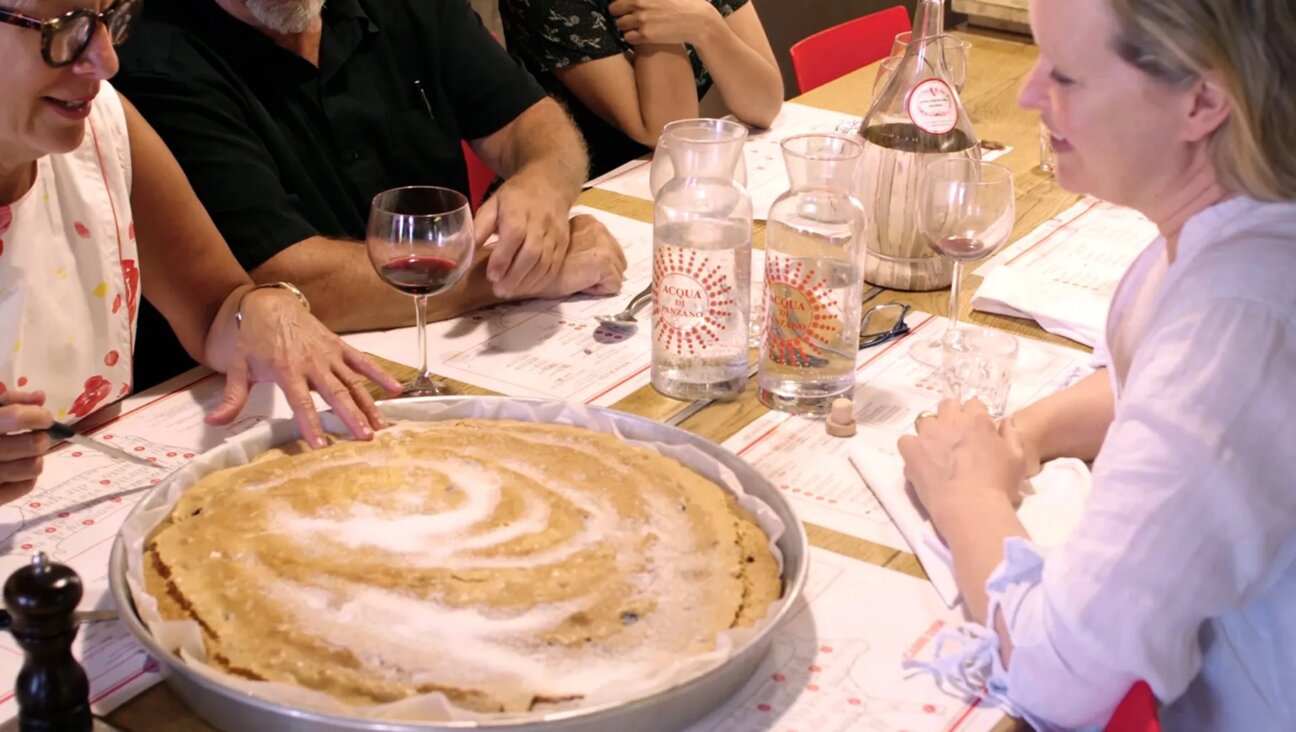Fire-Roasted Eggplant for Lag Ba’Omer

Growing up, the only thing that Lag Ba’Omer signified was a time for bonfires. In the New York suburbs the closet we got was barbeques, which for me meant an opportunity to eat watermelon. Barbeques were never particularly exciting to me, and when I got older and became a vegetarian, they held even less appeal. Furthermore, the holiday of Lag Ba’Omer also never fully made sense to me. Why were bonfires the hallmark of a celebration for ending of the plague killing Rabbi Akiva’s students?
Like many other confusing cultural phenomena, I put this aside and continued to care little about the holiday and the inevitable celebration of meat, knowing that while the appearance of veggie burgers could never be counted on since the number of vegetarians is consistently underestimated, my trusty watermelon would undercut these issues.
This year, however, I undertook to move beyond watermelon – into other foods and a deeper understanding of the holiday. The most interesting thing that I learned, was that most sources view this as a celebration of the life of Rabbi Shimon Bar Yochai, author of the Zohar and teacher of the kabbalah, on the anniversary of his death. To remember and honor the light and guidance he brought into the world, we celebrate the entirety of his life on this day by bringing people together in the presence of fire, a force of light, warmth, and strength.
As I thought about how to retain these qualities and augment the repertoire of dishes prepared for this holiday, my favorite grilled and/or roasted vegetable, eggplant came to mind. Able to withstand high heat while retaining its flavor and becoming deliciously soft and yet still substantial, eggplant is perfectly suited to its starring role in this vibrant salad.
In theory, you could roast the eggplant over a fire if desired. To do so successfully you would want to insure that it isn’t being steamed. Living in Brooklyn I have yet to try this method, but to anyone with the initiative to work with an open fire, I have faith that it would yield a delicious dish.
This salad can be made ahead but is best served warm, when the feta can nestle into the pieces of eggplant and the bright seeds can stand out, reminiscent of the flames and light of Lag Ba’Omer, the uplifting celebration in the midst of a period of mourning.
Roasted Eggplant, Feta, and Pomegranate Salad
2 large eggplants
3 tablespoons olive oil
2 tablespoons red wine vinegar
1 tablespoon honey
½ teaspoon smoked paprika
3 garlic cloves, minced
½ tablespoon lemon juice
2 ounces crumbled feta
½ cup pomegranate seeds
4 tablespoons chopped flat parsley
Preheat oven to 400 degrees.
Cut eggplant into ¾ inch cubes. For best results, let sit in a colander with salt for 10 – 15 minutes, and dry off with a clean towel or paper towel before proceeding.
Create a marinade with the olive oil, red wine vinegar, smoked paprika, and honey. Toss with the eggplant and then add the garlic.
Roast the eggplant in one or two baking sheets or dishes at 400 degrees for 35 – 50 minutes (depending on how spread out or not the pieces are), checking to rearrange them every 15 minutes. For greater authenticity, this could also be done in a grill basket. When the eggplant is done the pieces should be browned on the outside and very soft on the inside. Some pieces may be darker than others.
Put into a bowl and toss with the lemon juice, feta, pomegranate, and chopped parsley. Serve immediately and enjoy!
Lauren Greenberg is a Program Fellow at Hazon. She graduated from Tufts with a BA in English, and in her spare time enjoys reading short stories, running without music, and baking desserts that contain vegetables.
Photo credit – Flickr: garlandcannon

I hope you appreciated this article. Before you go, I’d like to ask you to please support the Forward’s award-winning journalism this Passover.
In this age of misinformation, our work is needed like never before. We report on the news that matters most to American Jews, driven by truth, not ideology.
At a time when newsrooms are closing or cutting back, the Forward has removed its paywall. That means for the first time in our 126-year history, Forward journalism is free to everyone, everywhere. With an ongoing war, rising antisemitism, and a flood of disinformation that may affect the upcoming election, we believe that free and open access to Jewish journalism is imperative.
Readers like you make it all possible. Right now, we’re in the middle of our Passover Pledge Drive and we still need 300 people to step up and make a gift to sustain our trustworthy, independent journalism.
Make a gift of any size and become a Forward member today. You’ll support our mission to tell the American Jewish story fully and fairly.
— Rachel Fishman Feddersen, Publisher and CEO
Join our mission to tell the Jewish story fully and fairly.
Only 300 more gifts needed by April 30























